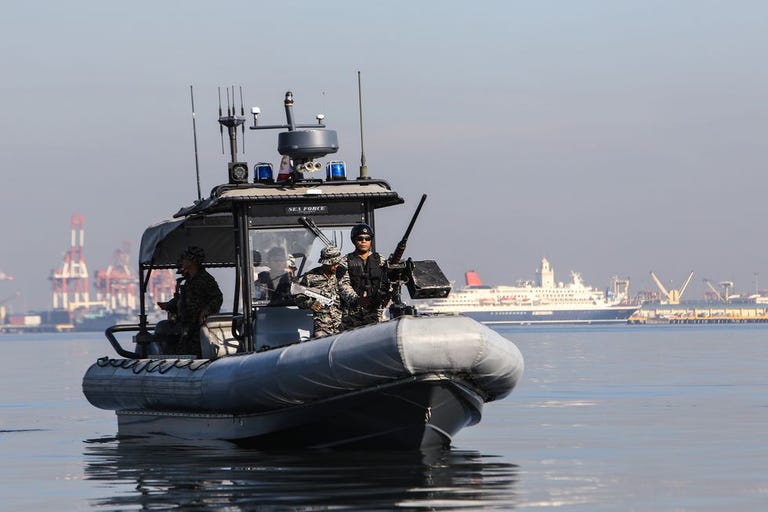Merchant Ship Goes Medieval, Throws Boiling Oil To Fight Off Pirates
It’s the 21st century and ship crews are using medieval siege tactics to stay alive.
By Kyle Mizokami
GETTY IMAGES
When pirates tried to board a merchant vessel off the coast of the Philippines, the crew defended their ship like a castle, throwing boiling oil and water at the invaders. They succeeded in fending off the buccaneers, but this battle highlights the variety of desperate, homebrewed anti-pirate measures that some boat crews must employ to prevent capture—or worse.
The incident took place five miles southeast of Sibago island in the Philippines, in the Celebes Sea. Three pirate motorboats overtook and attempted to board the MV Kudos 1, a local merchant ship, with ropes and hooks, but were foiled by the crew medieval maritime warfare.
The pirates called off their attack but opened fire on the ship, wounding one crewman who cut his hands on broken glass. gCaptain reports that the Philippine Coast Guard responded to the MV Kudos 1’s distress call, and the injured crewman received medical attention. Philippine navy ships and Coast Guard helicopters equipped with night vision devices rushed to the area, but could not locate the pirates.

A parapet at the Qasr al Asrag fort in Jordan. Dating to the 13th century, the holes in the parapet were designed to dispense boiling oil.
GETTY IMAGES
Defenders of castles, ships, and other more-or-less fixed fortifications have used boiling oil to rout their attackers for thousands of years. Oil boils quicker than water, and boils at a higher temperature, which makes it great for things like frying chicken...or pirates. Oil’s viscosity also means it will, unlike water, stick to skin and cause terrible burns.
In 1099, Crusaders besieging Jerusalem suffered “heavy losses” from boiling oil, and Jewish defenders during the Siege of Yodefat poured boiling oil down on attacking Roman soldiers, the boiling liquid bypassing their armor plating and causing terrible injuries.
The explosion of piracy in the 2000s off the coast of Somalia saw an increase in ad hoc weapons, from barbed, electrified wire to fire hoses and nets designed to foul the propellers of pirate ships. Although piracy in the Horn of Africa region has tapered off, the Sulu/Celebes sea area has become a new hotbed of organized crime at sea. No surprise, since the area sees $40 billion in trade passing through annually.
No comments:
Post a Comment